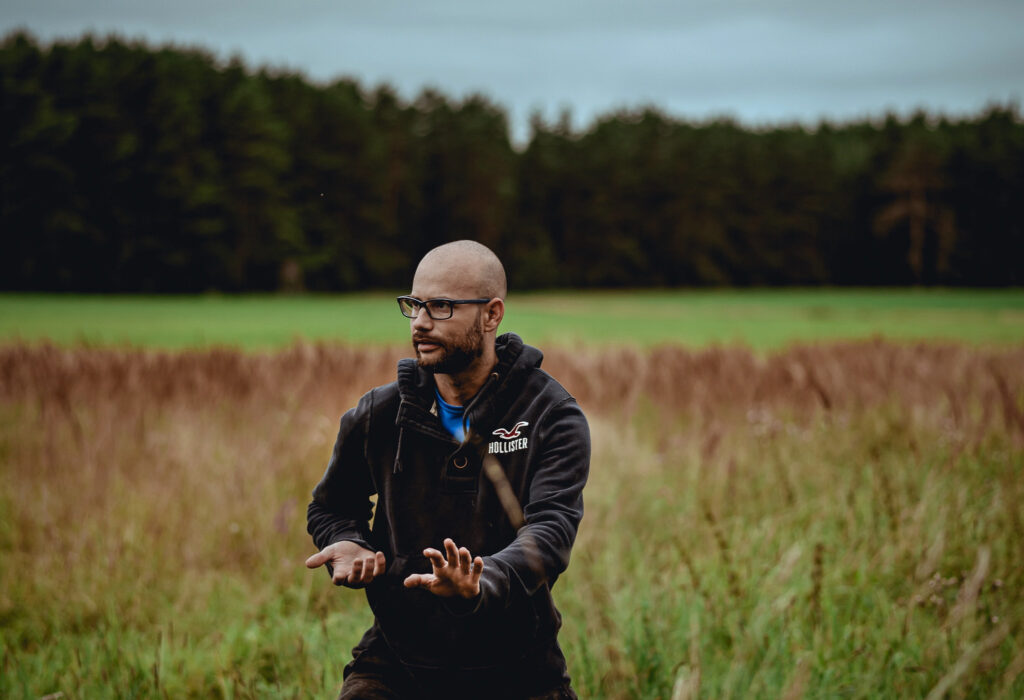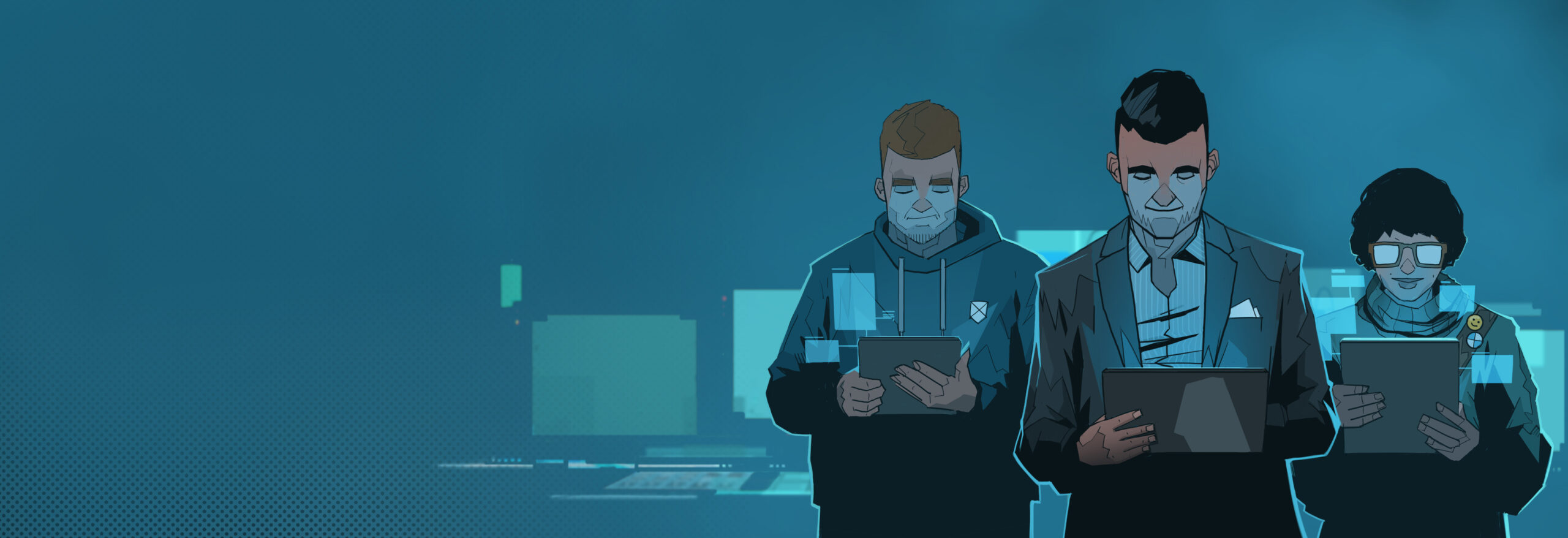To be productive and deliver excellent results. Withstand the times of crisis and not get too carried away by success. Maintain one’s performance, while avoiding burnout. Be able to shut off work and focus on one’s personal life. These are just some of the requirements faced by employees in the 2020s. How to manage them all?
Fortunately, mental health and a balanced life are no longer taboo, and it is now normal to discuss unpleasant topics openly. After Covid, topics such as burnout, frustration with working from home, social isolation or depression came to fore. At TITANS, we reflect on these topics, and we know that mental well-being and motivation are essential to a well-functioning productive team. These things as well as others are the responsibility of Jirka Doležal here at TITANS.

“Structure is everything. To have priorities (daily, weekly, monthly, annual…) organised. To keep the rhythm of self-control: of my tasks, priorities, and the fulfilment of my obligations. It is also necessary to set boundaries and communication mechanisms for when I am overwhelmed. And last but not least, regular rituals for mental recovery. And then of course the foundations of mental energy: good relationships, sleep, food, and my own relationship with myself,” Jirka summarizes the most important things.
Sport for good mental health
We know that we should keep moving and we know that movement relieves stress. We often get worked up by our own goals, roaming around the block at night to tick off all the boxes on our smartwatch. Still, movement is necessary for mental health, but it is also necessary to approach it in a healthy way: “It is crucial. I recommend starting with a weekly overview of how many hours I spend sitting, how many hours a week I spend moving properly. Based on that, I can then make changes to my calendar,” Jirka explains how to start changing your regime.
“In the office, you can do 5 minutes of exercise and stretching, modify breathing patterns, etc. Because this is still not the norm, however, one should be prepared for witty remarks from colleagues. If I’m mentally uncomfortable, this can be too much of a barrier. Therefore, I would recommend teaming up with supportive colleagues and setting up regular “healing session” in the office, like we have, for example,” he adds.
Brush teeth, pray and sleep.
Did you take naps in the nursery, or did you spend nap time whispering under your breath with your friends in the next bed? Were you reluctant keeping your bedtime? And do you now say to yourself: What would I give today to be able to have a nap after lunch and to have everything done by seven? Sleep is a topic that tends to “run in the background”. If we don’t have any issues with it, we take it for granted. At the same time, we spend about a third of our life sleeping. Or at least we should.
“Sleep probably has the largest database. The conclusions slightly differ, but they share the main finding: people who regularly sleep less than 7 hours a night significantly increase the likelihood of mental illness. There are also beautiful graphs showing the correlation between the decrease in the quality and duration of sleep-in society, and the increase in anxiety, depression, cognitive impairment and/or the decrease of memory.” This is what Jirka Doležal says about the importance of sleep.
Being able to “turn off” can also help the quality of your sleep.
This means to leave your work at the workplace (which is often not completely possible) or at least not to deal with serious matters just before bedtime, not to disturb your free time with less pressing work matters etc. The phrase “sleep on it” has its purpose, after all. Our problems can look bigger and more demanding in the evening, when we are overloaded with the day’s activities, than they do in the morning, when our head is clear. But how to intentionally switch from work mode to personal mode?
“Structure is key. I.e., I need to have a ritual (a meeting with myself) to close the day. This means knowing what went well and praising myself for it as well as knowing what went wrong and planning when to fix it. It means planning what needs to be done the next day and making a mental transition from one of my roles to the next. Especially if mine is the role of a parent, partner, etc.,” replies Jirka.

Better to burn out than to fade away?
At the beginning of a career, one may feel that they are immortal. They can do anything, work long hours, sleep a few, and to top it up, hit the gym and/or a party from time to time. After all, there is plenty of time for selfcare, right? However, everything that we toss behind us in terms of taking care of ourselves can over time come back like a boomerang.
Just as we build our immunity against various diseases since childhood, our mental health needs to build a defence mechanism. However, it is difficult to build one if we start looking for it only once we really need it, as Jirka describes:
“Mental resilience is not something we are naturally born with, but a skill. It has two dimensions affecting it – physical and mental. I need to take the utmost care of both parameters. When my mental resilience is low, I will be more stressed. This will then directly affect my ability to find creative solutions. I will put it into context: if I have a problem that I need to solve, if I am under severe stress with low mental resilience, my brain will work in survival mode. This means that I will gravitate towards familiar solutions. In today’s contexts, however, I often need to come up with a new solution. And here I will come into conflict with my level of mental resilience.”
According to Jirka, the above-mentioned is the way to avoid burnout, which many of us have experienced. Perhaps even more than once.
“It’s a healthy relationship with oneself. And it leads to oneself,” concludes Jirka.
What’s next?
With this article, we certainly do not end the topic of caring for mental health. On the contrary – together with Jirka Doležal, we are planning further texts for you, wherein we will discuss wellbeing topics. We will focus on sleep, regime, vacations or on the setting of boundaries. You can look forward to practical tips on how to take care of yourself and thus increase your productivity and motivation. So, keep following our newsletter TITANS’ NEWS as well as our titanic blog.

Titans that have
joined us

Clients that have
joined us

Succcessfully supplied
man-days




